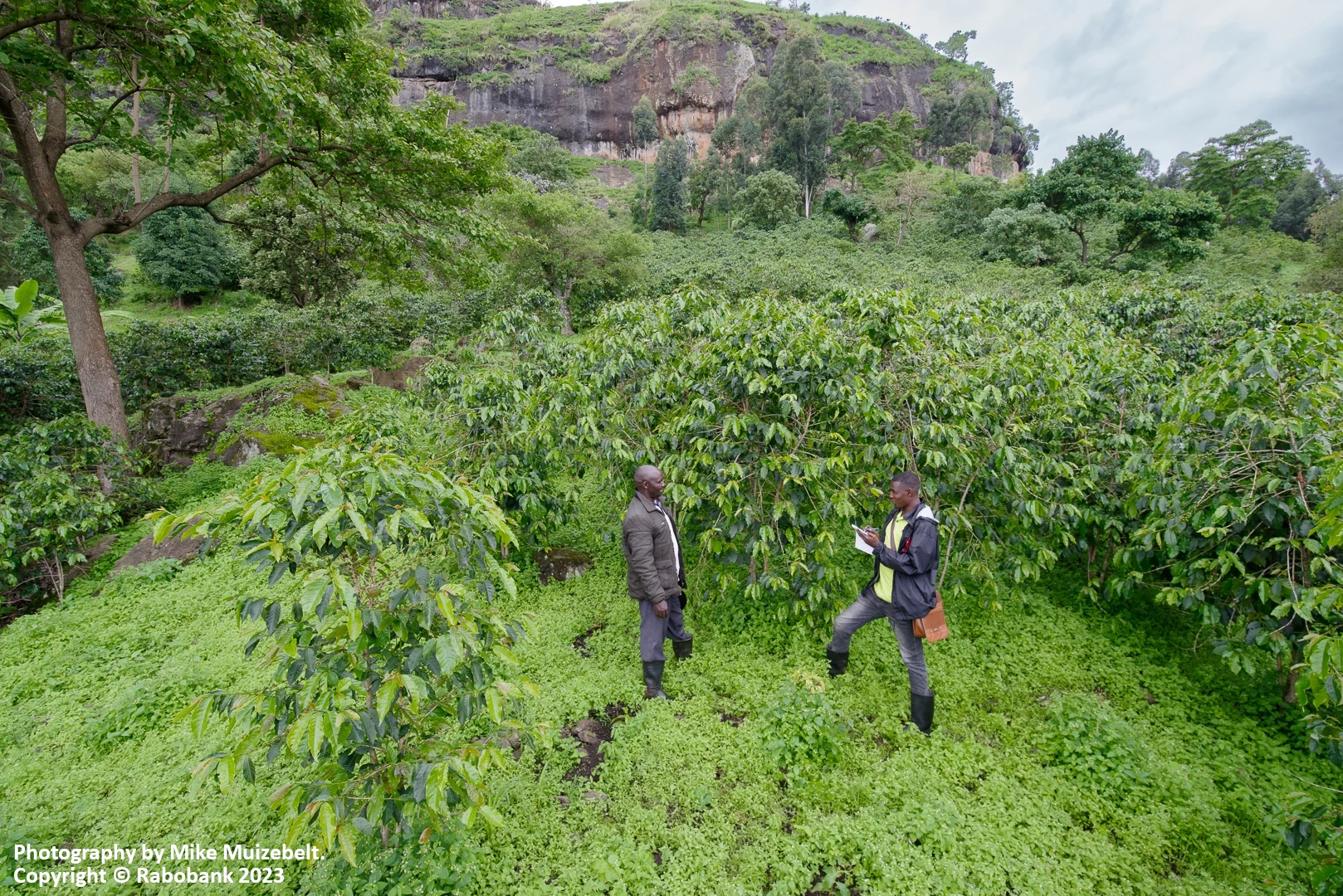Why Gender Equality and Women´s Empowerment are crucial for Successful Agroforestry Carbon Farming Projects
Agroforestry, a practical and sustainable form of land management used in carbon farming, has global and local benefits. It helps combat global climate change by trapping carbon from the air, makes local coffee farms more resilient to climate shifts, and provides extra income for the people involved in the project. However, it's important to note that not everyone may benefit the same way locally, especially the women who are involved in these projects.
In her master's thesis, Sustainability Science, Policy & Society alumni Merle Zoë Larro explored how this extra income is linked to gender equality and women's empowerment by looking at a project in Uganda participating in the Acorn programme.
Agroforestry, Carbon Farming, and the Acorn Programme
Carbon farming is a way to manage land to trap carbon and help the environment. One method is agroforestry, where trees, crops, and sometimes animals are all grown together on the same land. In this process, carbon is stored in the soil and plants. The stored carbon can be turned into carbon credits, which are like certificates that can be traded. Rabobank’s Acorn program provides a platform for the voluntary carbon market where carbon credits from smallholder farmers in the Global South are traded to organizations reducing their carbon footprint.
Why Women´s Empowerment?
In Uganda, more women (68%) are involved in agriculture compared to men (58%) as of 2021. However, in a specific coffee-focused project called Solidaridad ECA Uganda, most of the farming work is done by female smallholder farmers. Surprisingly, despite the majority of work being carried out by women, 90% of the project's participants are men.
The issue stems from the fact that land ownership is largely controlled by men due to social norms, which restrict women from owning land and making decisions about farming activities. While women are recognized as essential to agriculture and are given land for farming, participation in programs like Acorn requires land titles, putting most women in the project through their male relatives or husbands.
Social expectations also play a role, associating forestry and tree-related work with masculinity. This leads to women often working with shrubs, particularly for tasks like gathering firewood. The benefit derived from trees, including their harvest and sale, tends to favour men due to prevailing social norms, limiting women's economic opportunities.
Furthermore, men and women in agroforestry projects often have different priorities. Women typically value subsistence benefits like food security, while men lean towards commercial purposes such as timber. These differences in preferences affect the benefits and opportunities provided by programs like Acorn, making it crucial for decisions to be shared, often through male relatives or husbands, especially in the context of tracing payments to individual participants.

The Role of Agroforestry Carbon Farming Projects
Putting a price on the service of trees in agroforestry that captures carbon can make trees more valuable. But this might make existing social differences worse. When agroforestry becomes profitable, men often take control, which could make it harder for women to access resources. This extra money, especially in a carbon farming program, might not be good for women who usually use agroforestry for basic needs.
In some cases, inequality can lead to problems like violence at home and not having enough food for women and kids. However, in this project, most people agreed that it's important to share the money from selling carbon credits equally. Many people used the money to improve their farms or support their families. Those in charge of selling carbon credits wanted to treat women and men equally to avoid problems and in this way align with the United Nations' Sustainable Development Goal on gender equality.
Measures for Women´s Empowerment
The project Solidaridad ECA Uganda is doing a lot to help women be more involved and treated equally. They provide extra money, training, and tree seedlings. They encourage women to be part of decision-making groups and recognize that women often prefer fruit trees. They also work to change traditional ideas about what the whole family can achieve together. This project has the potential to make a big difference in achieving gender equality.
For other projects like carbon farming to be fair for everyone, they should make sure that everyone has the same chances. This means treating men and women equally, changing traditional ideas, giving everyone access to resources and decision-making, and respecting what women are interested in and know. This is important not just because it aligns with international goals for gender equality, like Sustainable Development Goal 5, but also because it helps agroforestry projects succeed and benefits everyone involved in the process.
This article derives from the Master thesis “Missing SDG 5 Gender Equality for the Trees? On the Empowerment of Female Smallholder Farmers in the Acorn Programme”, as part of the Master's Degree Sustainability Science, Policy & Society at Maastricht University.
Relevant links
Also read
-
Flour, family, and forward thinking: the evolution of Hinkel Bäckerei
In the heart of Düsseldorf, the comforting aroma of freshly baked bread has drifted through the streets for more than 130 years. Since its founding in 1891, Hinkel Bäckerei has evolved from a small neighborhood bakery into a cherished local institution.
-
Contribute to a Voice for Children in Conflict Areas
Dr Marieke Hopman and Guleid Jama are launching a new research project on the role of children in peacebuilding in conflict areas.
-
Administrative integration through agency governance The role of Frontex, the EUAA and Europol
PhD thesis by Aida Halilovic